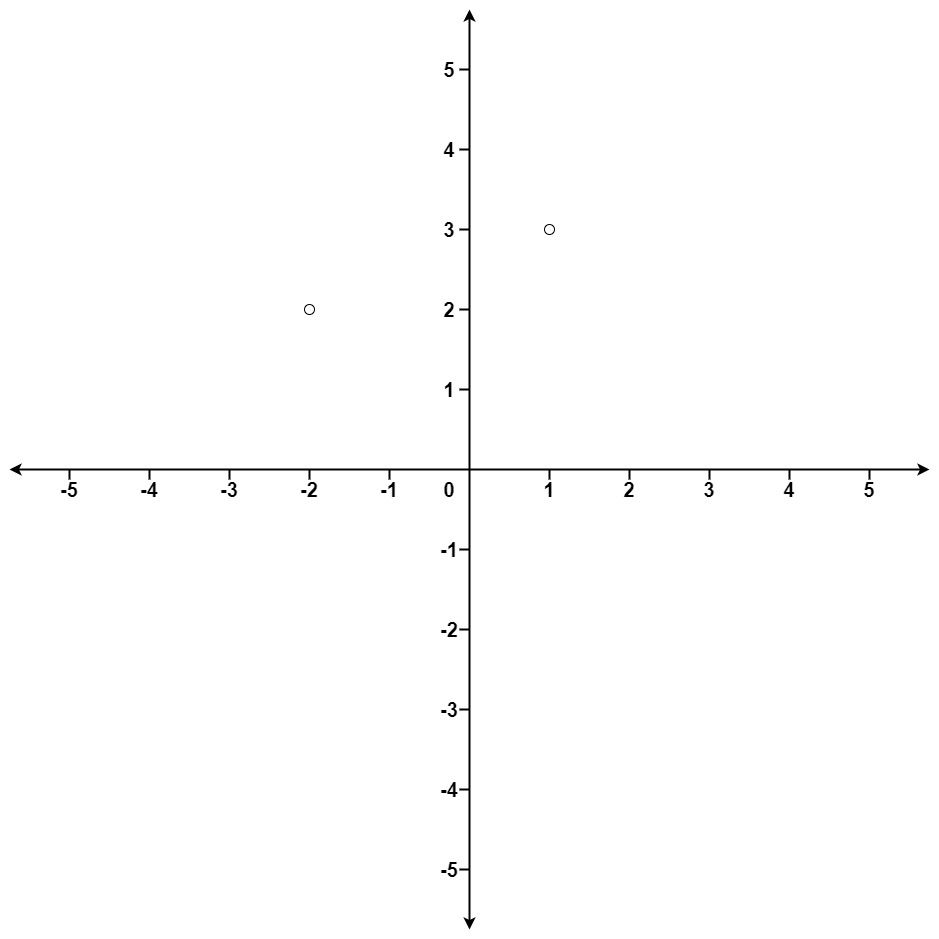Welcome to Subscribe On Youtube
973. K Closest Points to Origin
Description
Given an array of points where points[i] = [xi, yi] represents a point on the X-Y plane and an integer k, return the k closest points to the origin (0, 0).
The distance between two points on the X-Y plane is the Euclidean distance (i.e., √(x1 - x2)2 + (y1 - y2)2).
You may return the answer in any order. The answer is guaranteed to be unique (except for the order that it is in).
Example 1:

Input: points = [[1,3],[-2,2]], k = 1 Output: [[-2,2]] Explanation: The distance between (1, 3) and the origin is sqrt(10). The distance between (-2, 2) and the origin is sqrt(8). Since sqrt(8) < sqrt(10), (-2, 2) is closer to the origin. We only want the closest k = 1 points from the origin, so the answer is just [[-2,2]].
Example 2:
Input: points = [[3,3],[5,-1],[-2,4]], k = 2 Output: [[3,3],[-2,4]] Explanation: The answer [[-2,4],[3,3]] would also be accepted.
Constraints:
1 <= k <= points.length <= 104-104 <= xi, yi <= 104
Solutions
-
class Solution { public int[][] kClosest(int[][] points, int k) { Arrays.sort(points, (a, b) -> { int d1 = a[0] * a[0] + a[1] * a[1]; int d2 = b[0] * b[0] + b[1] * b[1]; return d1 - d2; }); return Arrays.copyOfRange(points, 0, k); } } -
class Solution { public: vector<vector<int>> kClosest(vector<vector<int>>& points, int k) { sort(points.begin(), points.end(), [](const vector<int>& a, const vector<int>& b) { return a[0] * a[0] + a[1] * a[1] < b[0] * b[0] + b[1] * b[1]; }); return vector<vector<int>>(points.begin(), points.begin() + k); } }; -
class Solution: def kClosest(self, points: List[List[int]], k: int) -> List[List[int]]: points.sort(key=lambda p: p[0] * p[0] + p[1] * p[1]) return points[:k] -
func kClosest(points [][]int, k int) [][]int { sort.Slice(points, func(i, j int) bool { a, b := points[i], points[j] return a[0]*a[0]+a[1]*a[1] < b[0]*b[0]+b[1]*b[1] }) return points[:k] } -
function kClosest(points: number[][], k: number): number[][] { return points.sort((a, b) => a[0] ** 2 + a[1] ** 2 - (b[0] ** 2 + b[1] ** 2)).slice(0, k); } -
impl Solution { pub fn k_closest(mut points: Vec<Vec<i32>>, k: i32) -> Vec<Vec<i32>> { points.sort_unstable_by(|a, b| { (a[0].pow(2) + a[1].pow(2)).cmp(&(b[0].pow(2) + b[1].pow(2))) }); points[0..k as usize].to_vec() } }